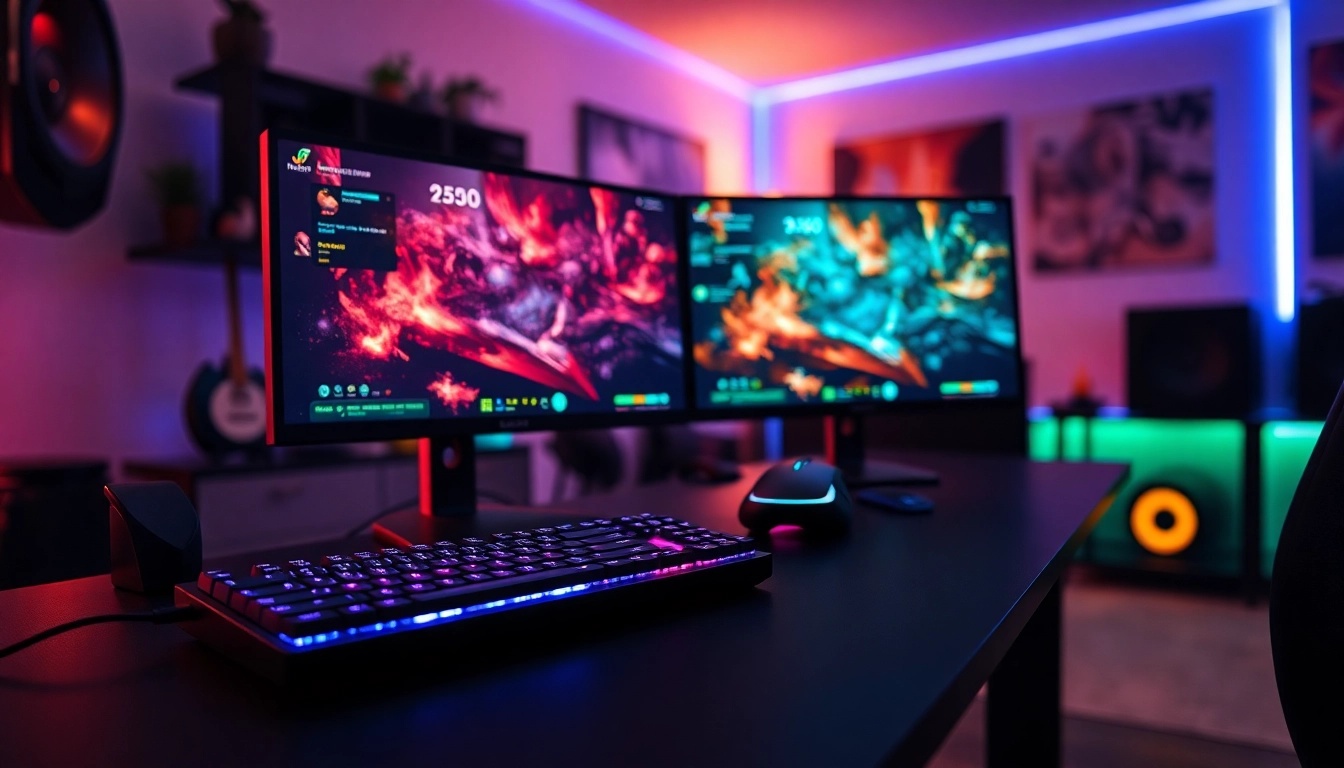
Understanding Anxiety: Common Types and Symptoms
What is Anxiety?
Anxiety is a natural response to stress, characterized by feelings of worry, fear, and apprehension. It can manifest in various ways, from mild unease to debilitating disorders that affect daily functioning. Understanding anxiety starts with recognizing its normalcy as a human emotion; everyone experiences it at some point in their lives. However, when anxiety becomes excessive or chronic, it may indicate an anxiety disorder, necessitating intervention.
Types of Anxiety Disorders
There are several recognized types of anxiety disorders, each with distinct features. The most common include:
- Generalized Anxiety Disorder (GAD): Characterized by persistent and excessive worry about various aspects of life.
- Panic Disorder: Involves sudden and intense feelings of terror, often accompanied by physical symptoms like heart palpitations.
- Social Anxiety Disorder: A fear of social situations that may lead to embarrassment or scrutiny.
- Specific Phobias: Intense fear reactions to specific objects or situations, such as heights, spiders, or flying.
- Obsessive-Compulsive Disorder (OCD): Involves unwanted repetitive thoughts (obsessions) and actions (compulsions) performed to relieve anxiety.
- Post-Traumatic Stress Disorder (PTSD): Occurs after experiencing or witnessing a traumatic event, resulting in intrusive memories and heightened arousal.
Recognizing Symptoms of Anxiety
Symptoms of anxiety vary widely but often include both psychological and physical manifestations. Common symptoms can include:
- Persistent worry or fear
- Restlessness and irritability
- Difficulty concentrating
- Physical symptoms such as a rapid heartbeat, sweating, or shaking
- Sleep disturbances
Recognizing these symptoms early is crucial, as effective strategies for dealing with anxiety can significantly improve quality of life.
Practical Techniques for Dealing with Anxiety
Mindfulness and Meditation Practices
Mindfulness and meditation techniques can significantly reduce anxiety by promoting relaxation and present-moment awareness. These practices include:
- Mindfulness Meditation: Focus on breathing and sensations to anchor thoughts in the present.
- Body Scan: This involves mentally scanning your body for tension and consciously relaxing each area.
- Guided Imagery: Visualizing peaceful and calming scenes can help alleviate feelings of anxiety.
Breathing Techniques to Alleviate Anxiety
Breathing exercises are simple yet effective ways to control anxiety. Techniques like diaphragmatic breathing, also known as belly breathing, can help induce a state of calmness by slowing your heart rate and reducing blood pressure. Try the following technique:
- Find a comfortable position, either sitting or lying down.
- Inhale deeply through your nose, allowing your abdomen to expand.
- Exhale slowly through your mouth, focusing on releasing tension.
- Repeat this for a few minutes until you feel more relaxed.
Building a Routine for Stress Management
Establishing a daily routine can provide structure and predictability, essential factors in managing anxiety. Include time for:
- Physical activity
- Healthy meals
- Mindfulness or meditation practices
- Quality sleep
- Social interactions
By setting aside dedicated time for these activities, you can create a supportive environment in which to manage your anxiety.
Lifestyle Changes to Combat Anxiety
Healthy Eating for Mental Wellness
Your diet plays a vital role in mental health. Consuming a balanced diet rich in:
- Omega-3 fatty acids (found in fish)
- Whole grains
- Fruits and vegetables
- Lean protein sources
These foods can help regulate mood and decrease anxiety symptoms. Avoiding excess sugar and caffeine can also help stabilize energy levels and mood.
The Role of Exercise in Reducing Anxiety
Regular physical activity is a proven method for reducing anxiety. Exercise releases endorphins, chemicals in the brain that act as natural painkillers and mood elevators. Aim for at least:
- 150 minutes of moderate aerobic exercise each week, such as brisk walking or swimming.
- Muscle-strengthening activities on two or more days a week.
Participating in activities you enjoy can also enhance adherence to an exercise routine.
Sleep Hygiene and Its Impact on Anxiety
Insufficient sleep can exacerbate anxiety and lead to a vicious cycle of insomnia and heightened anxiety symptoms. To promote better sleep hygiene, consider the following tips:
- Establish a consistent sleep schedule by going to bed and waking up at the same time each day.
- Create a restful environment, free of distractions.
- Avoid stimulants, such as caffeine, close to bedtime.
- Engage in relaxation techniques before bed, such as reading or taking a warm bath.
Professional Help: When and Where to Seek Treatment
Understanding Therapy Options for Anxiety
Professional help can be vital for individuals struggling with anxiety. Common therapy options include:
- Cognitive Behavioral Therapy (CBT): Focuses on identifying negative thought patterns and replacing them with positive ones.
- Exposure Therapy: Gradually exposes individuals to anxiety triggers, helping to lessen their fear over time.
Engaging with qualified mental health professionals can provide personalized strategies and support.
Medication as a Treatment for Anxiety
In certain cases, medication may be prescribed to help manage anxiety. These can include:
- Antidepressants: Often used to treat anxiety disorders, especially SSRIs.
- Benzodiazepines: These can provide short-term relief for severe anxiety but come with risks of dependency.
Always discuss the benefits and side effects with a healthcare provider before starting any medication.
Support Groups and Community Resources
Connecting with others who understand your struggle can be immensely helpful. Support groups provide a space to share experiences and coping strategies. Look for local or online options that match your needs. Additionally, community health resources can offer valuable information on managing anxiety.
Long-Term Strategies for Managing Anxiety
Developing Coping Mechanisms
Long-term management of anxiety often requires developing personalized coping mechanisms. Techniques can include:
- Positive self-talk and affirmations.
- Journaling to express feelings and clarity.
- Setting realistic goals and practicing problem-solving.
Maintaining Relational Support
Building a strong support network is essential. Maintain relationships with friends, family, or support groups who can provide reassurance and guidance. Communication is key; let loved ones know how they can help you manage your anxiety.
Continuous Self-Reflection and Adjustment
Monitoring your feelings and responses to various situations can help you understand your anxiety better. Periodically reassess coping strategies and stressors to adjust your approach as needed. Seeking feedback from trusted relations can also provide insight into your progress and challenges.







